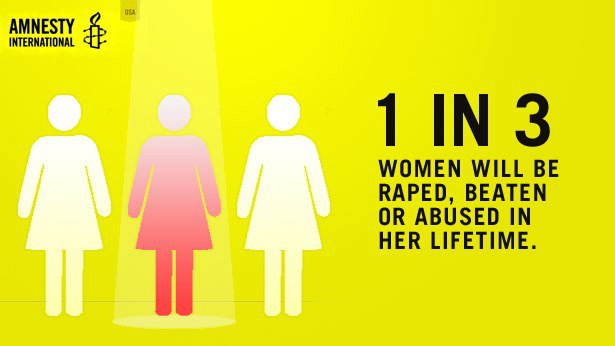
By Rebecca Landy, Women’s Human Rights Coordination Group
Saturday, March 8 is International Women’s Day – a day marking global recognition of women’s rights. International Women’s Day (IWD) was first celebrated in 1911 in Austria, Denmark, Germany, and Switzerland as a day of demanding women’s rights to work, hold office, and vote. It wasn’t until 1975 that it was given official U.N. recognition. Every year, the U.N. designates a theme for the day.
For 2014, the year’s theme is: Equality for Women is Progress for All.
While it is a day to celebrate the successes of the international women’s rights movement, International Women’s Day is also an occasion for global activists to focus world attention and rally together for the work that still needs to be done to combat gender discrimination. This work includes challenging the global epidemic of violence against women and respecting, protecting, and fulfilling women and girl’s sexual and reproductive rights.
Human rights are universal, but access to these rights is not. Around the world, women and girls are denied these rights because of their gender, including the human right to have control over your own body and health.
The consequences are devastating. For women like Khumeni Bishwakarma of Nepal, who was 15 when she was forced to marry and developed uterine prolapse, a painful and debilitating condition. The risk factors for this condition are exacerbated by adolescent and repeated pregnancies and heavy lifting before and after pregnancy, which Khumeni had to do after each of her 10 pregnancies.
Around the world, women and girls are denied these rights because of their gender, including the human right to have control over your own body and health. The consequences are devastating.
You can help put pressure on the Nepali government to recognize this urgent human rights issue and develop a plan to prevent uterine prolapse by ending the gender discrimination that puts women at risk of this condition.
Sexual and reproductive rights do not exist in a vacuum. Critical factors like women’s economic insecurity and gendered powered hierarchies and discriminatory attitudes make violations of these rights more likely to occur.
These are some reasons why each year the U.N. holds its Commission on the Status of Women (CSW), which takes place during or close to IWD at U.N. Headquarters in New York City.
This year the 58th Session of CSW will meet from March 10-21, 2014. The CSW is the largest United Nations meeting addressing the situation of women, and brings together several hundred representatives from governments, U.N. entities and civil society (including Amnesty International).
The timely priority theme to be discussed at this year’s CSW is: Challenges and Achievements in the Implementation of the Millennium Development Goals for Women and Girls.
Amnesty is calling for strong agreed conclusions at CSW, including in the areas of gender equality, sexual and reproductive health and rights, and elimination of gender-based discrimination and violence.
There are also other upcoming intergovernmental gatherings to focus on these issues.
The U.N. Commission on Population and Development, in the context of the 20th review of the International Conference on Population and Development (ICPD+20), will take place in April.
A total of 179 states, including the United States, signed the ICPD Program of Action in 1994. Governments agreed to make equality and empowerment of women a global priority and committed to providing sexual and reproductive health services and rights. 20 years later, many of these commitments have fallen short.
Most of the 1.8 billion young people worldwide still struggle to access sexuality education and the sexual and reproductive health services they need – but you can help make sure these rights are prioritized.
Now is the time to stand up for the rights of women like Khumeni in Nepal, and for women and girls around the world.
Learn more ways to take action for IWD and beyond by downloading Amnesty’s #IWD2014 action toolkit.
